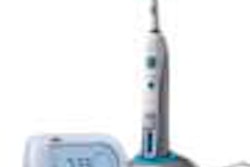Twenty years of research has consistently shown that oscillating-rotating toothbrushes are safe compared with manual toothbrushes, but a systematic review of all clinical and laboratory investigations comparing the safety of these toothbrushes with manual toothbrushes has not been published.
This prompted an international group of researchers to examine the literature concerning the relative soft and/or hard tissue safety outcomes with the use of oscillating-rotating toothbrushes compared with manual toothbrushes (Journal of Periodontology, January 2011, Vol. 82:1, pp. 5-24).
Using the electronic databases of the National Library of Medicine (PubMed-Medline), the Cochrane Central Register of Controlled Trials (Cochrane-Central), and the Excerpta Medica Database (Embase), they conducted a search of in vivo and in vitro trials through May 2010. Eligible trials incorporated a safety evaluation as a primary or secondary outcome parameter or used a surrogate parameter to assess safety. Data extraction for the primary- and surrogate-measure safety studies was performed, along with a meta-analysis of the gingival recession data.
Independent screening of the titles and abstracts of 697 PubMed-Medline, 436 Cochrane-Central, and 664 Embase papers resulted in 35 publications that met the eligibility criteria.
The mean change in gingival recession was not significantly different among toothbrush groups in the two selected trials with safety as a primary outcome, the researchers noted. A meta-analysis of the five trials that evaluated safety with a surrogate parameter was not possible; however, there were no significant between-group differences at the study end in any trial. A descriptive analysis of the 24 selected studies assessing safety as a secondary outcome revealed few brushing-related adverse events.
"A large body of published research in the preceding two decades has consistently shown oscillating-rotating toothbrushes to be safe compared to manual toothbrushes, demonstrating that these power toothbrushes do not pose a clinically relevant concern to hard or soft tissues," the researchers concluded.
Copyright © 2011 DrBicuspid.com



















